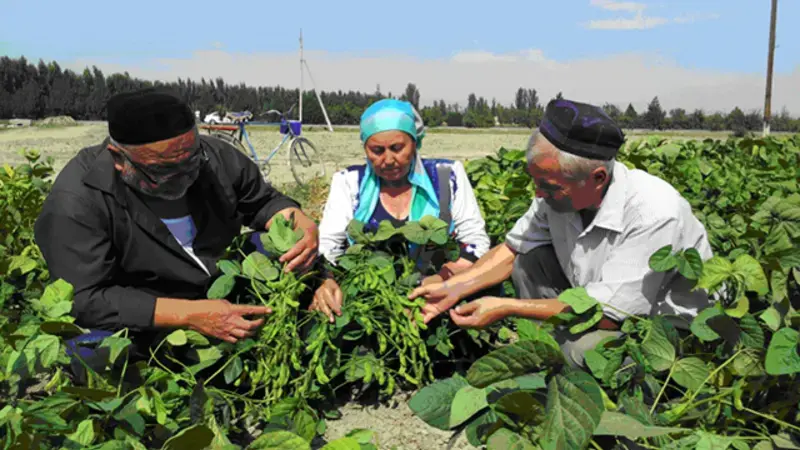Collaborative research & capacity building program for sustainable & resilient agricultural production systems in Central Asia

ICARDA-IFPRI project has led to improved practices for integrated water & land management in Central Asia.
ICARDA and the International Food Policy Research Institute (IFPRI) are engaged in a four-year “CGIAR Collaborative Research & Capacity Building Program for the Development of Sustainable and Resilient Agricultural Production Systems in Central Asia under the Conditions of Changing Climate,” in partnership with the Eurasian Center for Food Security (ECFS) at Moscow State University, with support from the Russian Federation. This program supports research activities related to integrated land and water management in the framework of the CGIAR Research Program Dryland Systems (CRP-DS), led by ICARDA.
The research seeks to attain solutions for sustainable growth in agricultural productivity in the dry areas in selected action sites. The initiative also aims at strengthening agricultural research and capacity-building efforts in Central Asia. It is built on an existing partnership – the consortium of eleven International Agricultural Research Centers operating in the region and the National Agricultural Research Systems. Linkages have been established with the Moscow State Lomonosov University and the relevant institutions of the Russian Academy of Agricultural Sciences. This program has also fostered multiple partnerships with organizations in Kazakhstan, Kyrgyz Republic, Tajikistan, Turkmenistan, Uzbekistan, other CGIAR centers and international partners. These partnerships have expanded with full implementation of research activities in field research sites in Aral Sea Region and Fergana Valley in 2014-2015.
The implementation of program activities has led to the adoption of improved practices for integrated water and land resources management to mitigate soil salinity and waterlogging in the cotton-wheat-rice livestock production system in the Aral Sea Region. Improved options including more resistant and productive crop varieties were evaluated in farmers’ fields and adopted for mixed production system integrating cereals, potato, vegetable, horticultural and fodder crops, agroforestry and livestock.
This program has also facilitated the exchange of knowledge and experiences with other parts of the world and created an innovation platform, bringing together all relevant partner groups from research, policy, education, private sector and practice. It is the first large-scale research program to use an integrated agro-ecosystems approach to improve productivity and livelihoods in the dry areas. It targets two representative dryland systems: (i) one with the most vulnerable populations, and often associated with severe natural resource degradation (Aral Sea Region); and (ii) the other with the greatest potential to impact food security in short to medium term, in Central Asia (Fergana Valley).
Improved production options for diversifying the cotton-wheat-livestock and vegetable-horticultural-potato production systems of Fergana Valley were developed and promoted. A strategic innovation platform was established and made operational for integrated land conservation and watersheds management leading to improved access to irrigation, enhanced cultivation practices and pasture management for sustainable agriculture and livelihoods in action sites.
This multi-stakeholder and multi-institutional process, together with other development initiatives and proactive cooperation of policymaking/government institutions, will go a long way in contributing to the CGIAR’s system level outcomes of reducing rural poverty, increasing food security, improving human nutrition and health, and sustainable management of natural resources.
